There is no doubt about the fact that in this digital age, if you are running a business, having a strong online presence gives you an edge over your competitors. Being a business, it’s a given that you want to attract more consumers, which is not a piece of cake.
Customers or consumers of your products and services have become much more aware than they ever were about the options they have in choosing the products or services available in the market for their needs. They perform their due diligence on the product before making a purchase decision.
Today, 95% of consumers check online reviews before making their buying decisions. And you know what are their most preferred go-to options for the same? Yes, you guessed it right. It’s Yelp and Google reviews.
Yelp and Google reviews are the two major platforms for customer feedback. But the question is which is better, which is more reliable? Don’t worry, here we are with all the important insights on Google vs Yelp, that will help you optimize your businesses for the same.
Before diving deep into it, let’s understand the basics.
Why are Customer Reviews Important for Business?
As discussed above, customers today are very smart and aware of the options available to them in choosing the right product. And why they should not be when information is easily available just a few clicks away. Genuine customer reviews are a win-win for both, the businesses as well as the consumers. Following are the ways they help both:
- Social Proof
Reviews act as social proof for your business online. It provides a sense of security among the consumers that your business is not a fraud or scam.
- Trust Building
Genuine reviews help you as a business to build trust among your target consumers which acts as a positive catalyst for your overall business and net revenue.
- Informed Decisions
It helps consumers make informed buying decisions based on quality, pricing, reputation, customer support, etc., which in turn helps them feel satisfied with the product or service they choose.
- Comparative analysis
It helps consumers to compare and evaluate different products and services available in the market which eventually helps them to make the best buying decisions for themselves.
Nowadays, reviews highly contribute to building your brand reputation and credibility as well in the following ways:
- Brand Perception:
It creates a perception of your brand among the customers based on the reviews of your product or services by your existing customers.
- Credibility Enhancement
It enhances the credibility of your business as it acts as social proof for your potential customers.
- Differentiation
Reviews, if genuinely positive act as a differentiator which helps you stand out amongst your competition.
- Improve your online presence
Reviews help you improve your search engine rankings organically, which helps you gain more visibility online.
Now that you understand the importance of reviews for businesses let’s find out which are the most relevant platforms for brands to get reviews.
Relevant Platforms for Businesses to Check Customer Reviews
There are many platforms for customer reviews, but the two that stand out and are most relevant are:
- Google Reviews
- Yelp
Google reviews vs Yelp, let’s try to understand each of them by diving deep into it.
What Are Google Reviews?
Google Reviews is a feature introduced by Google that enables users to share their experiences with a product or service. This is a prominent feature for any business, as it helps them gather real-time feedback from customers, improving service and credibility. Additionally, positive reviews can boost a business's visibility online, helping you buy Google reviews and reach your target consumers more effectively.
How do Google Reviews work?
The first step for you as a Business is to create a Google My Business profile. Once you create your profile, you need to connect your business with Google Maps so that your services are accessible to potential customers in your community. This process is called creating your business listing.
As a result, both existing and new customers can leave or view feedback through Google search or Google Maps. They can also view related pictures and comments.
Prominence of Google reviews for Businesses
As we all know, Google is the most used search engine in the world. Google reviews can help you immensely when it comes to building your brand and increasing your visibility online. It helps you rank higher on SERP. It helps you reach people organically without spending extra pennies on marketing of your business.
Following are the ways in which Google reviews help your business:
- Improve your ranking online
- Makes your business and services more accessible to users.
- It allows you as a business to manage and analyze customer reviews and feedback.
- It is one of the most reliable sources of information for consumers. If you use it right, it helps you come across as more reliable and trustworthy for your potential customers.
It is a known fact that everything has its pros and cons, and Google reviews are also not immune to this fact. Let’s discuss the pros and cons of Google reviews.
Pros of Google Reviews:
1. Easy for customers to use and engage:
Everybody today has a Google account as a result of Google being the most dominant in the industry. Customers can easily leave a review and also engage with reviews posted by others. On the other hand, to leave a review on Yelp or other review platforms, customers first need to create an account.
Today, with the busy lives they lead and the short attention span they have, most of the customers drop the ball at this very first stage.
2. Helps your business rank higher in search results:
If you have a decent number of positive Google reviews, your business will rank higher on the SERPs when potential customers search for that particular product or service.
More people find you online, which brings more business.
3. You can ask for reviews:
Unlike Yelp, on Google, you can ask for reviews from your existing or previous customers.
Google makes it easy for you by giving you a link that you can share with your customers and collect as many reviews as you want.
4. More likely to generate clicks and calls:
As a business, when you are registering, Google asks for your basic information like business name, location, contact details, etc.
These details show up on the result page whenever a potential customer looks for your products or services. So they are more likely to contact you regarding the same at the moment when all the information is handy for them.
Cons of Google Reviews:
1. Accepts only stars without text comments:
It allows customers to just leave a star rating out of five without leaving text comments. Though it may sound convenient for that customer but for a potential customer who is going through the reviews to make a buying decision, this may create confusion and uncertainty
2. Fraud Reviews:
Although Google is continuously updating its algorithm, still there are people who find loopholes which results in the case of fraud reviews at times that are misguiding.
What are Yelp Reviews?
Yelp is a crowd-sourced local business reviewing website that is mainly focused on reviewing individual locations like schools, restaurants, tourist sites, etc.
It has been one of the leading review and rating sites for more than a decade now
How do Yelp Reviews work?
On Google reviews, you need a Google My Business profile. Similarly, on Yelp, you can use a Yelp Review Widget to showcase your presence on Yelp.
Prominence of Yelp reviews for businesses
If we are talking specifically about reviews, Yelp is the number one go-to option for consumers. It receives hundreds and millions of views each month and it is reported that 60% of the people use Yelp to search for local businesses.
Following are the ways in which Yelp Reviews can help your business:
Maintaining a positive rating on Yelp encourages users to check out your site which in turn increases your brand’s visibility. It also helps you rank higher on search engines.
- It doesn’t filter reviews based on whether they are positive or negative, it recommends reviews most likely to be helpful and reliable for consumers.
- It filters unrecommended reviews i.e. the reviews that are not likely to be genuine and reliable and these unrecommended reviews don’t affect the rating of the business.
As we discussed earlier as well, Yelp also comes with its own set of pros and cons which are listed below.
Yelp Reviews Pros:
1. Established Reputation:
Yelp has built its reputation in the industry as a trustworthy and reliable source of customer reviews as it has been in the market for more than a decade now. It was primarily designed for people to read and write reviews which gives it a strong background.
2. Business friendly as disputes can be raised easily:
If you as a business feel that a review is inaccurate or misrepresents your business, Yelp helps you to rectify that easily, unlike Google’s exhausting process. You need to raise a dispute, the team will do their due diligence and the moderator will remove the review.
3. Has an engaged user community:
As it has been in the business for more than a decade now, it has an engaged user community with community ambassadors who frequently post reviews.
Yelp Reviews Cons:
1. You Can get bad reviews without setting up your business listing:
In Yelp, someone else can list your business and start collecting reviews without you being aware. In that case, if you get bad reviews, your online reputation might be damaged.
2. Hides genuine reviews sometimes:
Yelp’s unrecommended section acts as a boon as well as a curse sometimes because even genuine reviews might go unnoticed as a result of being on the unrecommended section.
Google Reviews vs Yelp: Which review platform is better for which industry?
Although both Google Reviews and Yelp Reviews are extremely relevant, they vary a little from industry to industry. Let’s see how:
- Retail and E-commerce: Because of Google’s wider reach and integration, Google Reviews are likely to affect a consumer’s buying decision.
- Local services (Plumbers, electricians, mechanics): Yelp dominates here as a result of its community-centric nature.
- Professional services (Lawyers, Accountants): Google reviews dominate the initial decision-making process for customers seeking professional services.
- Restaurant and food services: Yelp trumps here, again, due to its community-driven reviews that are focused on detailed experiences.
- Hospitality (Hotels and Accommodations): Both platforms are at par in this industry
Statistics Every Marketer Must Know
Conclusion:
There is no doubt about the fact that both Google Reviews and Yelp are extremely relevant for a business to make their brand build presence online. Depending upon your expertise and the industry you are from, you should try to make the most of both. Compare the pros and cons and choose wisely according to your business requirements and current needs.
FAQs
1. Which platform should businesses prioritize from Yelp and Google Reviews?
Yelp is predominantly designed for customers to read and write reviews whereas Google Reviews is an additional feature of Google for the same. Both have their own relevance, but depending on the industry you are from, you can make the decision for yourself.
2. How do Yelp and Google Reviews affect a business's online reputation and credibility?
We are living in a digital era. Customers are hyper-aware before making a purchase decision for themselves. So, having a good online reputation can really help your business and vice versa.
3. What strategies can businesses use to encourage more positive reviews on Yelp and Google?
Make sure you are authentic and genuine online. Consumers today are very smart and can tell if a brand is being a hypocrite. Don’t fabricate reviews just for the sake of ratings. Honesty really is the best policy.
4. How do customers leave reviews on Yelp and Google?
They need to have an account of respective platforms and search for that particular business, product, or service and easily leave their reviews. It is a simple process for both platforms.
5. How do reviews on Yelp and Google impact a business's online reputation?
Positive reviews help build credibility and reliability, which really help with your online reputation which in turn affects your business as well. Positive reviews contribute to the success and credibility of a business.
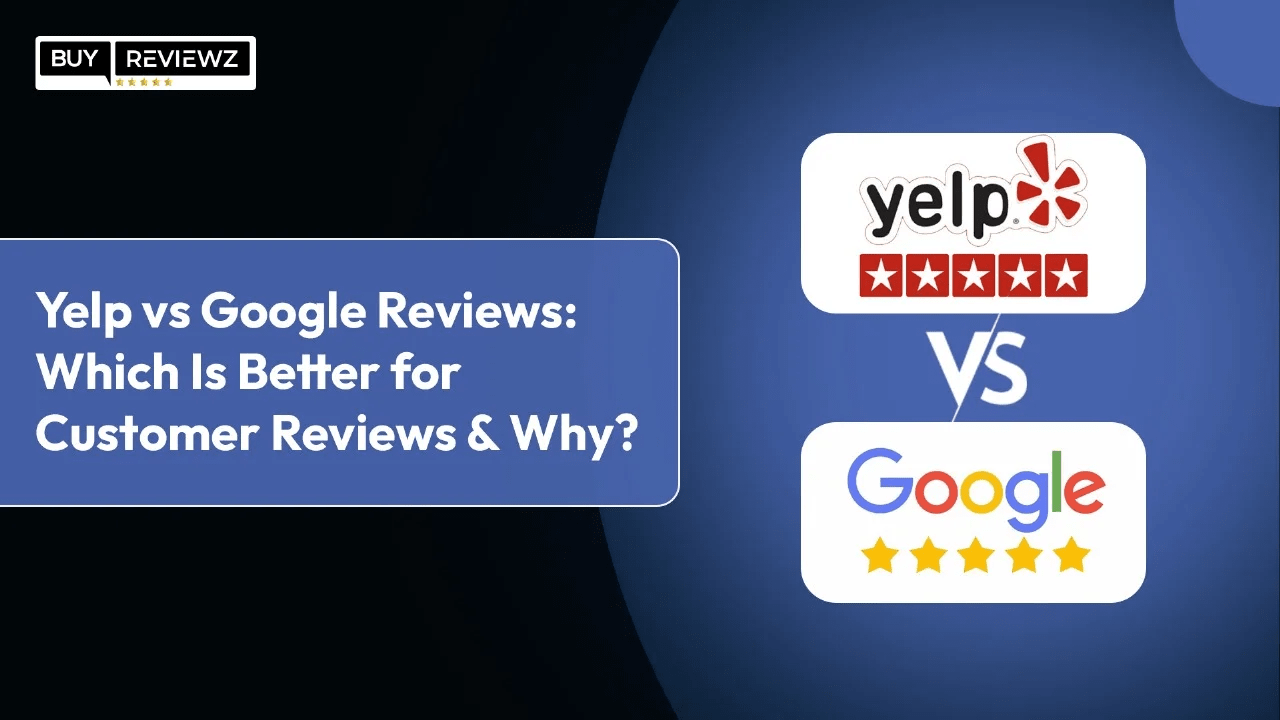

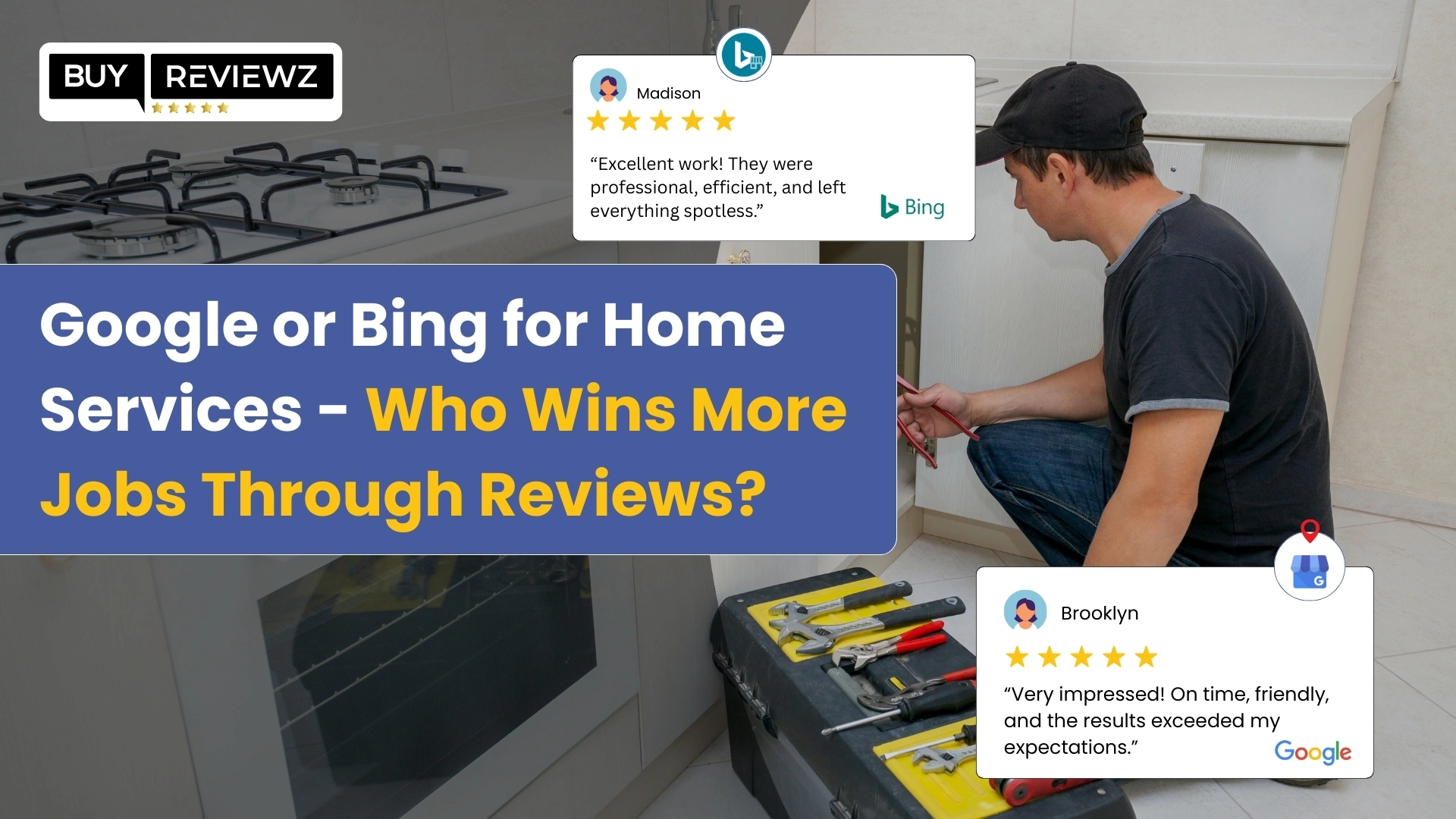

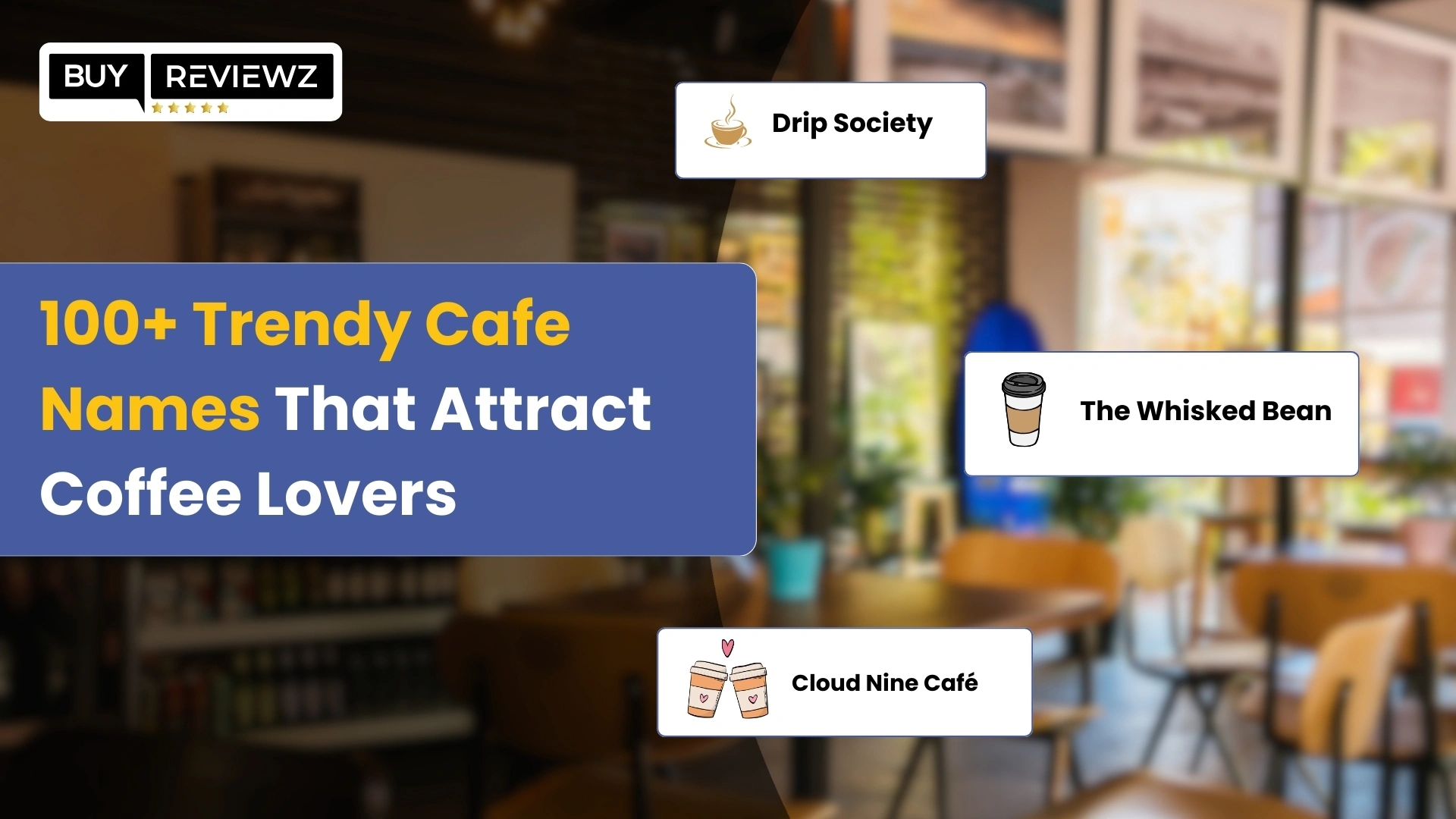

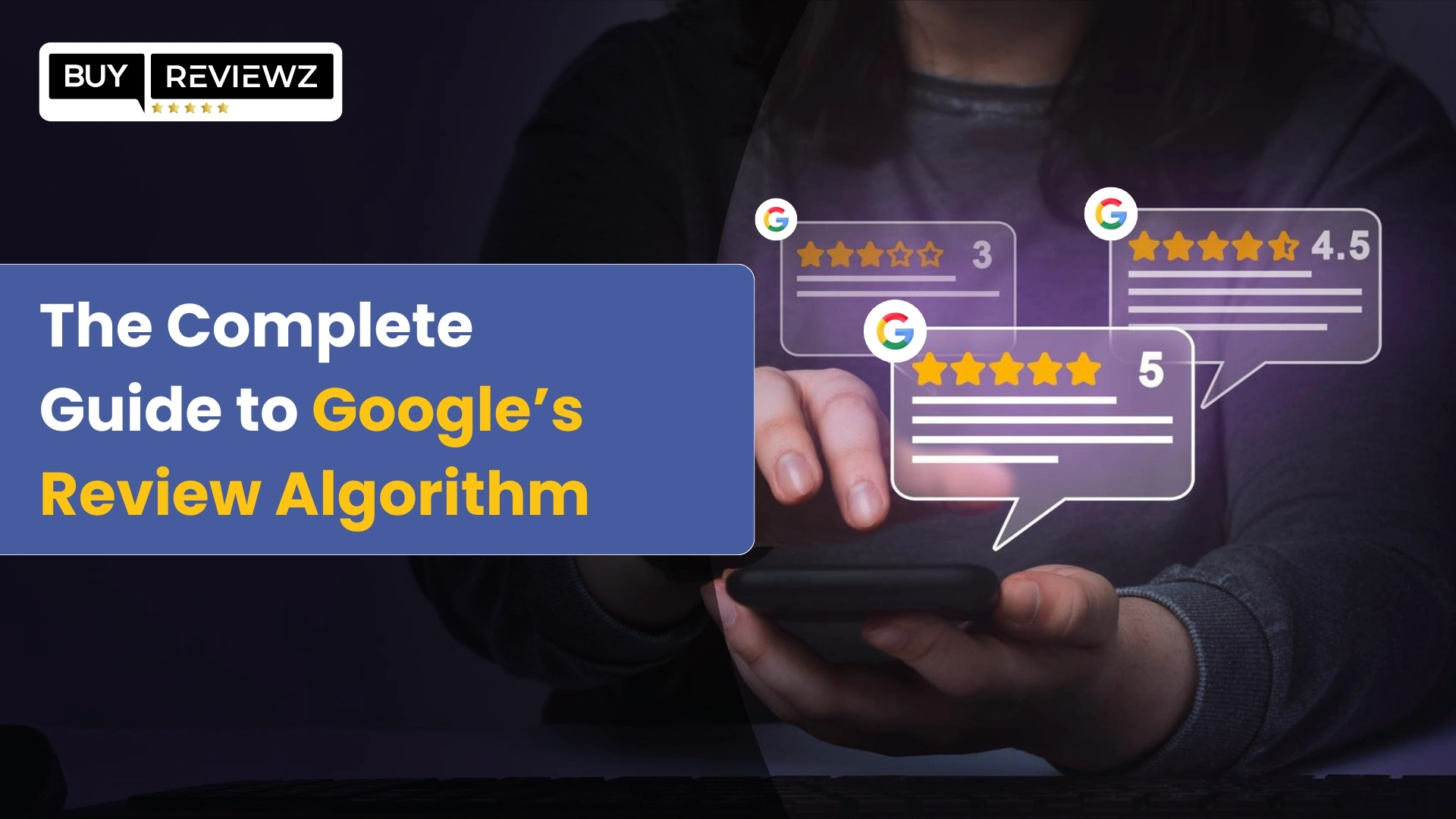
 Google Business Reviews API: A Complete Guide
Google Business Reviews API: A Complete Guide
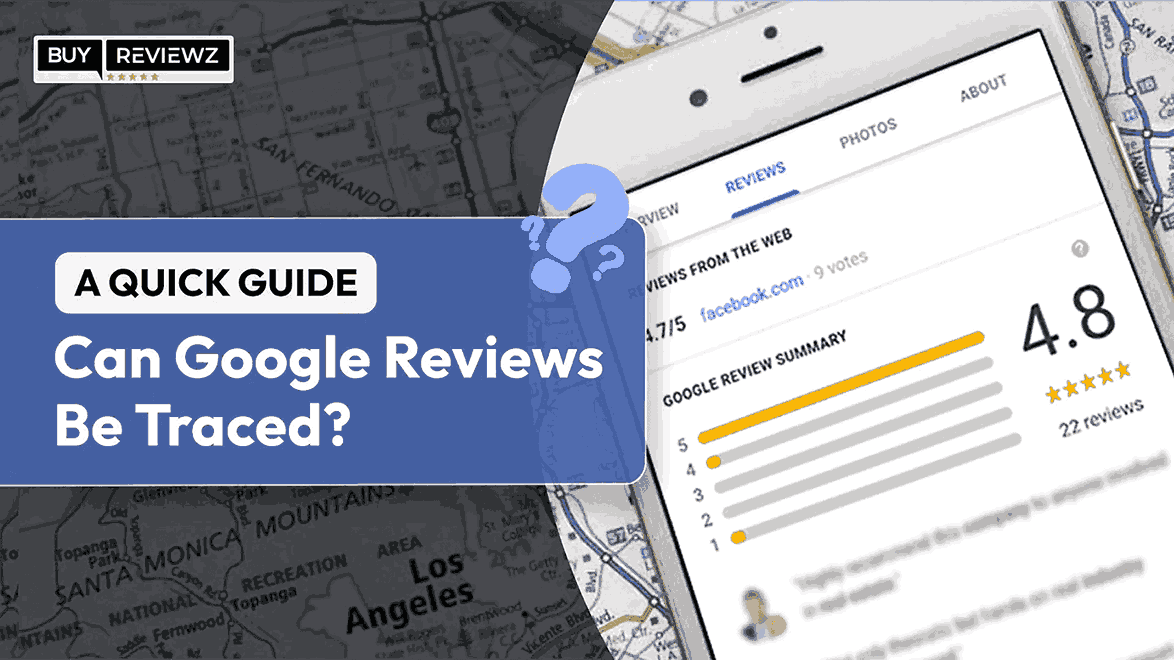 Can Google Reviews Be Traced? A Quick Guide
Can Google Reviews Be Traced? A Quick Guide
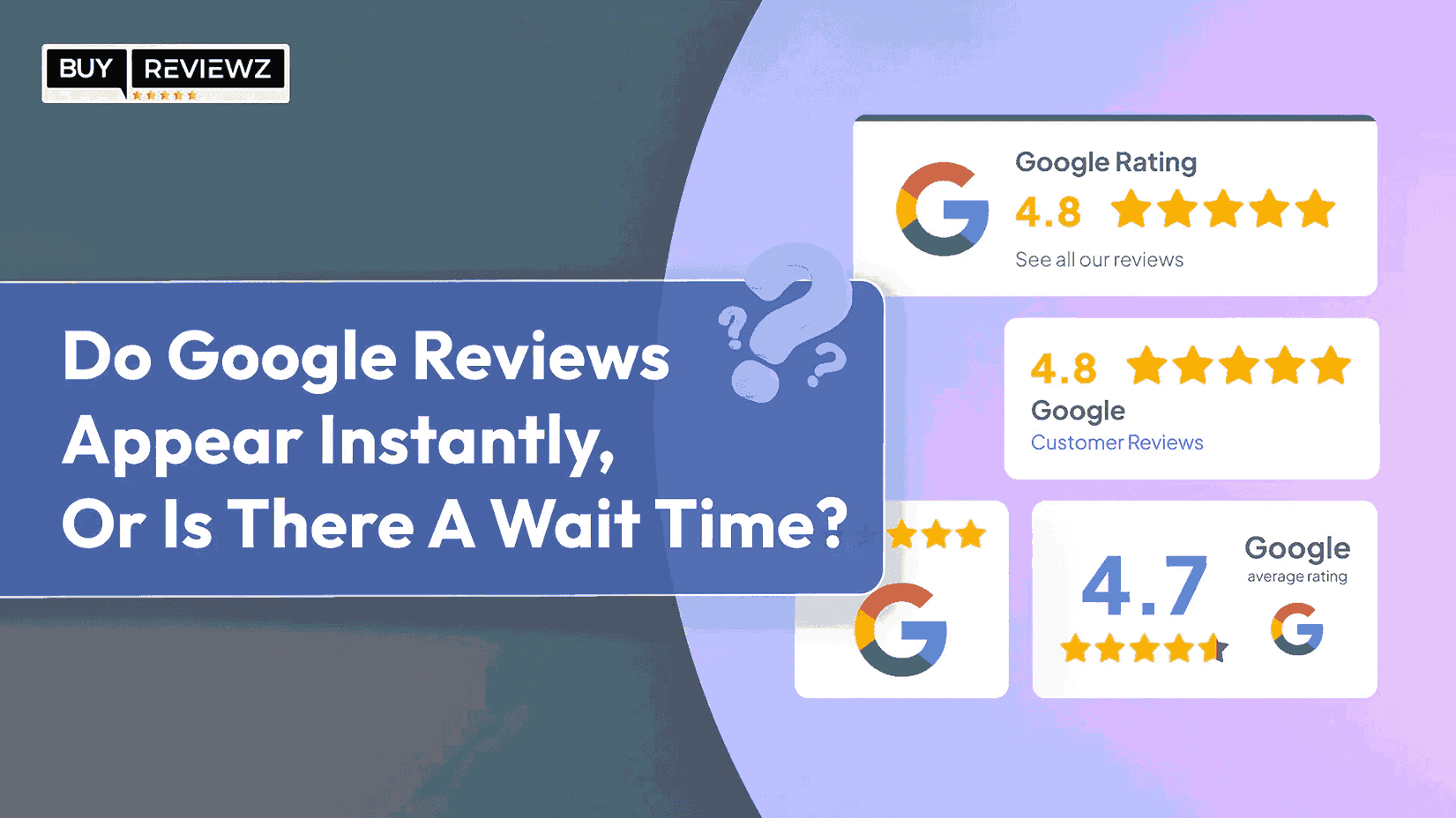 Do Google Reviews Appear Instantly or Is There A Wait Time?
Do Google Reviews Appear Instantly or Is There A Wait Time?